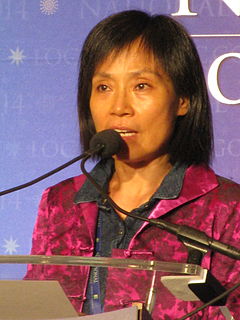A Quote by Ken Liu
There's this long history of colonialism and the colonial gaze when applied to matters related to China. So a lot of conceptions about China in literary representations in the West are things you can't even fight against because they've been there so long that they've become part of the Western imagination of China.
Related Quotes
I've often said that the desire to lecture China on how it should behave in the world is wrong. China was around for thousands of years even before America existed. It could even be that China's growing power will allow itself to be slowed down. But as long as this immense empire doesn't fall apart, it will become an important factor in global politics.
The reason why China forecasting has such a poor track record is that Westerners constantly invoke the model and experience of the West to explain China, and it is a false prophet. Until we start trying to understand China on its own terms, rather than as a Western-style nation in the making, we will continue to get it wrong.




































